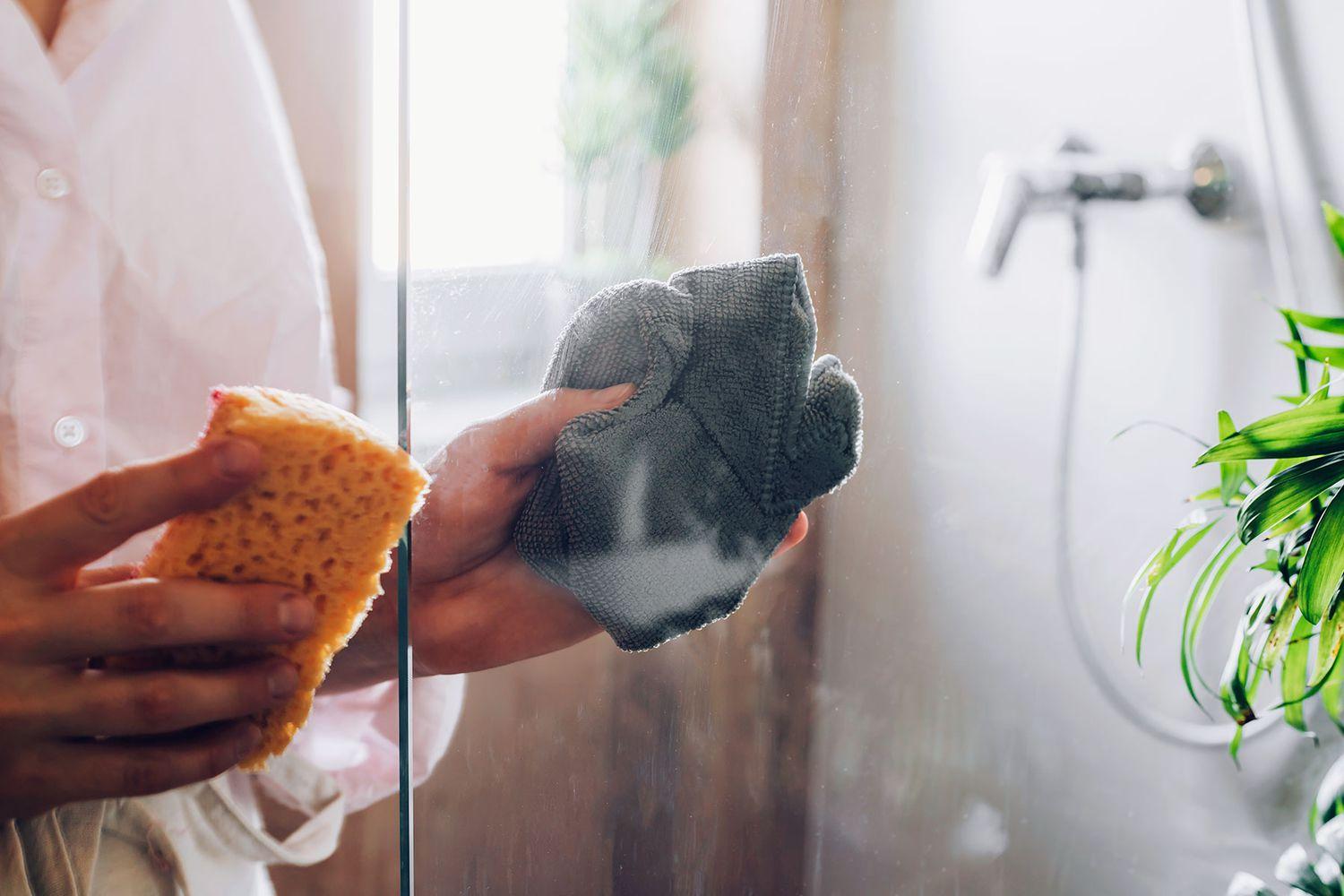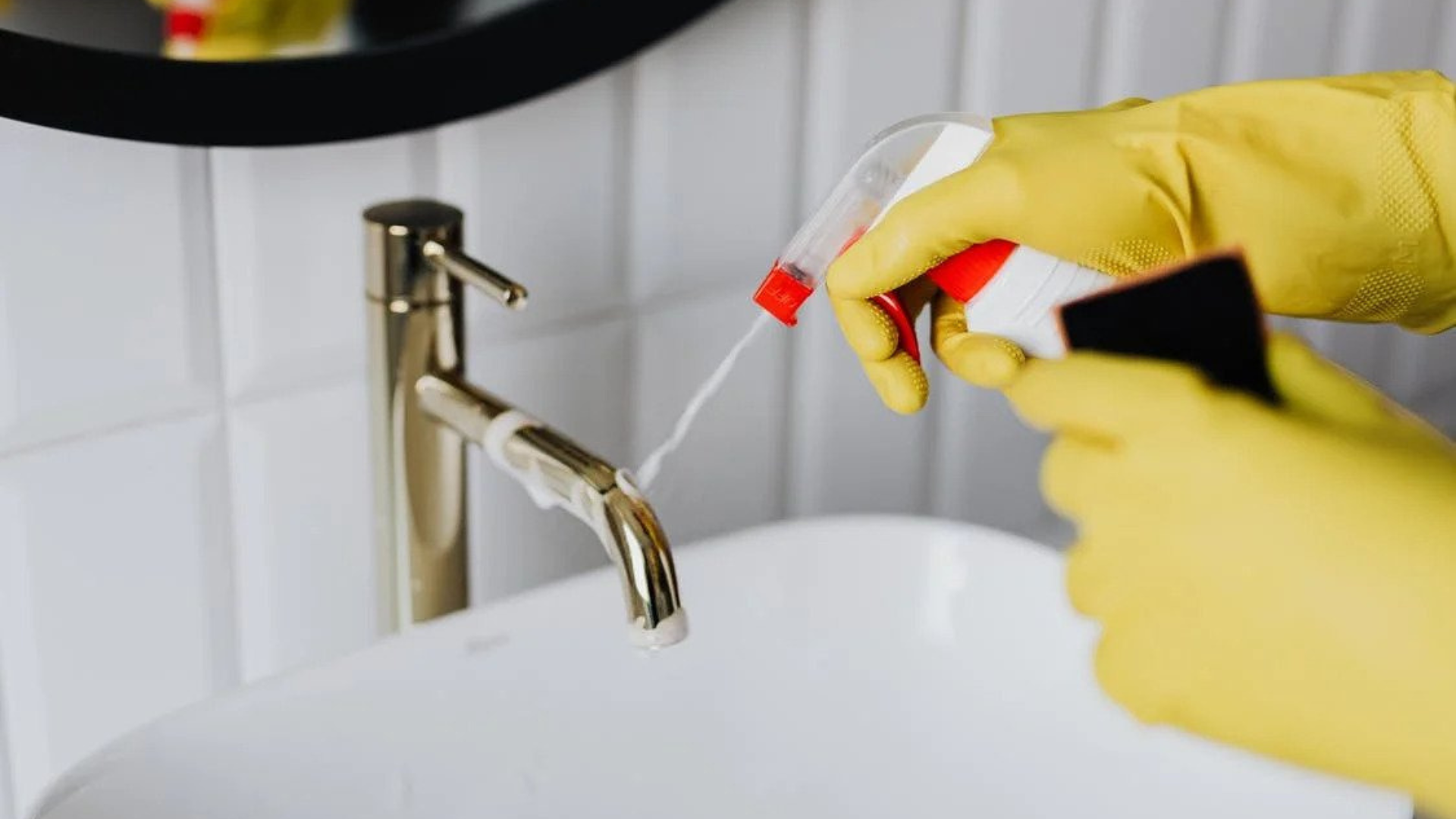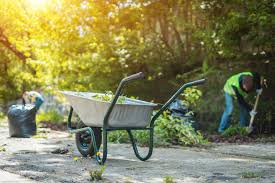Table of Contents
It’s a rare person who genuinely enjoys cleaning their bathrooms. It takes much time and effort to wipe down all surfaces, mop the floor, and vacuum hard-to-reach areas. But things get even tougher when it comes to removing dried-up dirt and ingrained limescale from taps, showerheads, and fixtures.
So, it’s about time you familiarized yourself with some great recipes that can help you deep clean your taps, shower doors, chrome fixtures, and tackle other areas in your bathrooms within the shortest time possible and without any risk to your precious health.
Deep-Cleaning Taps and Fixtures
If you have brand new faucets installed in your bathrooms, chances are you don’t need to apply much elbow grease or invest in expensive cleaners to maintain the cleanliness and original shine of your taps and accessories.
Just spray some multi-purpose cleaning onto your taps and other bathroom fixtures and wipe dry. Some mild detergents don’t require rinsing away. So, all you need to do is apply them on your taps at the end of the day to protect them from corrosion, mold, and limescale deposits.
If your taps have accumulated some dirt, though, and now show stains or pesky marks left behind by hard water, it’s time for the heavy artillery. You can either call affordable Manchester house cleaners or try out some eco-friendly solutions offered below.
Lemon Juice and White Vinegar Come to Your Rescue
It’s not a secret that the majority of commercial bathroom cleaners contain aggressive caustic ingredients that can be tough not only on tap surfaces but also your skin and lungs. No wonder, more and more homeowners now opt for DIY cleaners, which are more eco-friendly and gentler on all types of surfaces.
So, instead of grabbing an acid-based spray from the local supermarket shelf, try a less radical solution against stubborn stains and calcium deposits. The recipe is as simple as ABC: cut a lemon in half and squeeze some juice out. You can either collect the juice into a dedicated container or apply it directly to the problematic area. Let the squeezed juice work on the surface of your taps for ten minutes and rinse off.
Give the surface a thorough wipe. Opt for microfiber cloths if you want to avoid streaks.
- For delicate surfaces you may want to dilute lemon juice with distilled water. As a rule of thumb, mix one part water with one part lemon or lime juice in a spray bottle. The resulting solution can be safely left to act on stains and deposits for up to an hour.
Alternatively, you can mix an equal quantity of distilled water and white vinegar and apply the mixture to the areas that need cleaning. Vinegar is highly effective in tackling grime and limescale and is just great for disinfecting surfaces.
Salt and Baking Soda
It’s not always possible to remove the unwanted buildup from your bathroom taps, shower heads, and fixtures without scouring. But, as you know, scrubbing and abrasive particles which are normally present in popular cleaning solutions may compromise the condition of the coating. What if we say you can safely remove any grime and hard water deposits with something as simple as salt or baking soda?
Scoop up some fine salt and apply it to the affected areas. Let it sit on your taps or shower heads for a couple hours and scrub gently. This way, you can get rid of grime and break down the water deposits effectively.
Another great ingredient that can help male your bathroom shine is baking soda. You can make a natural cleaning paste by mixing some baking soda with water. Distribute this paste evenly over the stained surfaces and wait for a few hours. Rinse with plain water until they are shiny.
Warm Vinegar for Sparkling Shower Doors

Another problematic area that lots of homeowners hate cleaning is shower doors. It’s extremely difficult to maintain the shiny look because of those pesky splashes, soap scum, and streaks that persist no matter how hard we try to remove them. If you were just about to buy a touted commercial shower glass cleaner, hold on a sec!
Once again, good old while vinegar takes the stage and helps you out. But this time, you should spend a little time and warm it up. Mist both sides of your shower door and let the vinegar rest there for a few minutes. After that, you can scrub the sprayed surface. Any soft bristle scrubber will do.
Once you finish scrubbing, rinse the solution remains and dissolved deposits off your shower door and enjoy the ultimate cleanliness of your bathroom!





